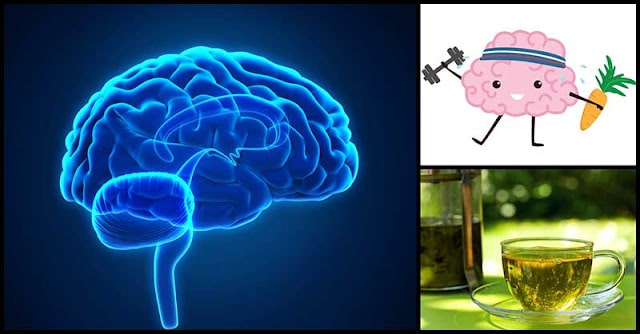As we get older, the thought of developing Alzheimer’s disease is one of our primary concerns. This disease often appears to be a simple forgetfulness, but over time, this will destroy a person’s comprehension, speech, and coordination. It may even cause mood swings and restlessness.
Luckily, we can lower our risk of this frightening disease. There were promising researches showing that we can protect our brain by having simple but effective lifestyle changes. One of the best things we can do is to exercise and eat right.
In a study conducted by a team from the University of Southern California, results showed that green tea and carrots can help reverse the symptoms of Alzheimer’s disease.
For the 3-month study period study, mice were genetically modified to develop Alzheimer’s diseases and were treated with epigallocatechin-3-gallate (EGCG) (a compound found in green tea) and FA (found in carrots and tomatoes). Before the experiment, the mice underwent a series of neuropsychological tests similar to the thinking and memory tests used to assess dementia in humans. One of these tests is the Y-shaped maze test which evaluates a mouse spatial working memory, which is a cognitive process that enables a person to remember different locations.
After treating them with a combination of EGCG and FA, the mice have restored spatial working memory and were able to perform well just as the healthy mice. The researcher concluded that EGCG and FA have prevented the breakdown of amyloid precursor proteins into amyloid-beta proteins which form clusters in the brains of people with Alzheimer’s and interrupt the activity of neurons. Also, the beneficial compounds were able to decrease the levels of inflammation and oxidative stress in the brains of the mentally impaired mice.
Results of this study were published in the Journal of Biological Chemistry.
Other Foods For The Brain
We all need to know that the kind of food and fats we eat have a huge impact on our brain’s health. For us to lower our risk of Alzheimer’s, we need to avoid foods packed with sugar and trans fats, and instead consider eating these foods listed below:
Berries
Berries (strawberries, blueberries, and acai fruit) were found to be beneficial for the brain. Experts have found that consumption of berries in large amount can cause a slower cognitive decline (up to 2.5 years difference) as a person ages and can even improve cognitive functioning.
Leafy Green Vegetables
Green leafy veggies have vitamins and antioxidants that promote brain health. Some leafy greens we can try is kale, spinach, and collard greens. Eat at least two servings of them each day.
Walnuts (and almonds, hazelnuts, pecans)
Though they are small, walnuts are loaded with nutrients that help protect the brain. They are rich in vitamin E, flavonoids and omega-3 fatty acids, a good fat that is needed by the brain. According to studies, eating nuts can help improve memory and motor condition. Snack on nuts at least five times a week.
Turmeric
Studies have shown that the curcumin content of turmeric can help prevent Alzheimer’s. Curcumin can help get rid of the amino acids that accumulate and formed as plaque int the brain that is linked with Alzheimer’s disease. Lower your risk of this disease by always including turmeric into your daily diet.
Salmon (and mackerel, sardines, other fatty fish)
Due to the high levels of omega-3 fatty acids, salmon (and other fatty fish), it can help lower blood levels of beta-amyloid which play a role in Alzheimer’s. Paul Nussbaum, Ph.D., a clinical neuropsychologist and member of the scientific advisory board for the Alzheimer’s Foundation of America recommends eating at least 8 oz of these fish per week to lower blood beta-amyloid levels.
Cinnamon
Cinnamon has anti-inflammatory and antioxidant effects. There were multiple studies linking cinnamon to an improved ability of clearing-up protein build-up in the brain, and improving memory and other cognitive functioning. Even simply smelling cinnamon was correlated with better memory.
Some other tips that can help us protect against Alzheimer’s disease and dementia in later life are as follows:
- Make a weekly date with friends
- Join a club or social group
- Visit your local community center or senior center
- Get to know your neighbors
- Take group classes (such as at the gym or a community college)
- Volunteer
- Connect to others via social networks such as Facebook
- Reach out over the phone or email
- Get out (go to the movies, the park, museums, and other public places)









